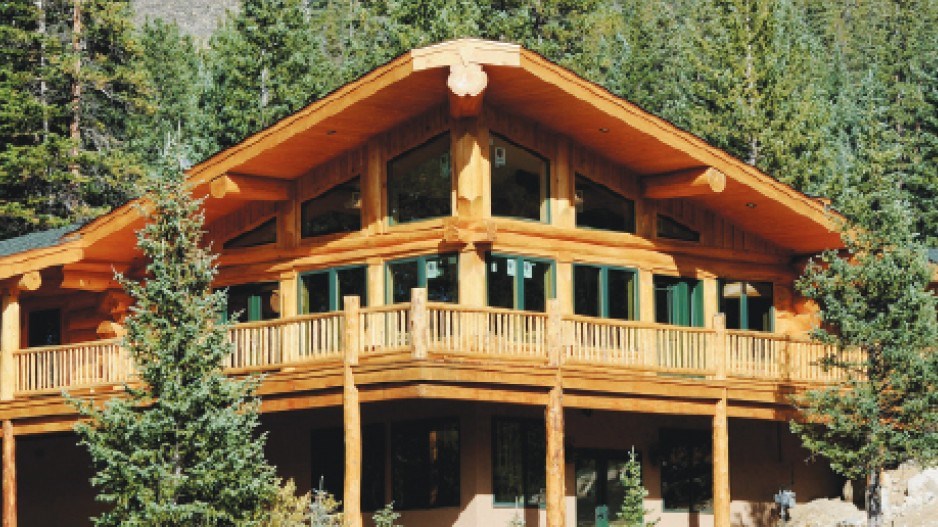BC has more certified forestland than any other jurisdiction in the world – with the exception of Canada as a whole. At the end of 2012, 52 million hectares of forestry had been certified in the province.
The race to certify forests as sustainable has been driven by customer demand and a rise in green building. According to EL Insights – an online source for sustainability data – the green-building market is currently valued at US$71.1billion.
In B.C. there are three certifications that vie for green supremacy and industry popularity – the Forest Stewardship Council (FSC), the Sustainable Forest Initiative (SFI) and the Canadian Standards Association's Sustainable Forest Management Standards (CSA).
SFI has been the winner so far with more than 25.6 million hectares in B.C. Coming a close second is CSA with 24.7 million hectares, and trailing behind is FSC with 2.4 million hectares.
However, FSC, the underdog in B.C, is considered the gold standard of forest management around the world. The certification is also the favourite among green builders and architects. FSC is the only wood acceptable in LEED projects, and many pulp and paper companies have seen demand rise for FSC-certified paper.
In contrast, in Ontario and Quebec, FSC is by far the most popular certification. The difference lies in the amount of privately held forestland in those two provinces, compared to B.C.'s forests, which are largely on Crown land.
"The private wood can be pooled and supplied into a larger mill driving FSC," said Orrin Quinn, FSC manager for Ecotrust Canada and a board member of FSC Canada.
"In B.C., our smaller tenures are much larger, mostly managed by professional foresters, spread across vast areas and may not be connected to FSC markets."
Tembec, a major forestry company in Eastern Canada, has been a large driver, as it made a policy decision to certify all of its lands with FSC. There are also several large pulp and paper companies that are driving the demand for FSC in Ontario.
"We do have FSC drivers in B.C. that are seeking FSC material, but not to the extent of Ontario and Quebec," said Quinn. "But the demand for certain products is increasing in B.C."
Mike Pellatt from Cowichan Lumber in North Vancouver decided to certify with FSC five years ago.
"We had many customers asking for FSC-certified products," said Pellatt.
"FSC has enabled us to win bids on projects that are green and require FSC certification. Without this FSC certification we would not have been able to participate in a number of projects."
Another company owner who is seeing a rise in FSC products is Aaron Moore, co-owner of Brian Moore Log and Timber Homes. The company recently built the first FSC-certified timber home in B.C.
"We let our clients decide which standard they want to have in their homes, and not all of them choose it," said Aaron. "There is a premium on the cost of those logs. We don't want to pass that on to the customers unless they've agreed it's valuable to them."
With use of FSC lumber rising, it can be difficult for merchants and builders to get hold of the wood.
"Sourcing FSC, certified material continues to be challenging," said Brian Mackenzie, president of Tasler Forest Products.
Moore also said it was frustrating.
"There is not a lot of FSC forest that can be logged," he said. "I think it's a problem."
However, SFI has also made strides on being recognized as an international standard. SFI was created by the American Pulp and Paper Company, but since 2007 the organization has become independent and has taken on some of FSC's standards.
Like FSC, there are three main stakeholders: industry, environment and social impact that take an equal weight on their board. But there are still differences between the certifications, especially on issues like clear-cuts, the use of pesticides and the protection of endangered species.
Even with those differences and lack of LEED support SFI has become a global player in the sustainable forestry market. It is recognized by the Programme for the Endorsement of Forest Certification (PEFC), which is the world's largest forest certification system.
David Waksman, chair of Stuwix Resources, a joint venture that includes eight First Nation bands, decided to go with SFI. "With SFI, we felt they provided us with very good product recognition around the world," he said.
Kathy Abusow, president and CEO of SFI, said that all of the standards are part of a market transformation; the fact that such a high percentage of B.C.'s forests are certified under one or another of the three schemes is positive. •




